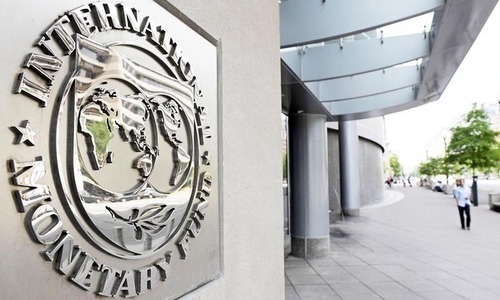
REVIVAL of loss-making public-sector entities was one of the central themes of PML-N Manifesto 2013 — National Agenda for Real Change — that gave the ruling party an overwhelming majority in the National Assembly.
“Today, several key state-owned institutions like Pakistan International Airlines (PIA), Railways, Pakistan Steel Mills (PSM), Wapda (power companies) and other institutions are a major drag on Pakistan’s economy.
“These loss-making entities are presently bleeding to the tune of Rs400 billion per annum. Therefore, reforming these state owned institutions through a combination of privatisation and restructuring is fundamental,” the PML-N Manifesto 2013 put on record a base to start with.
Despite having the resurgence of loss-making public-sector enterprises a key aspect of its 2013 manifesto, the performance of the party in power has remained dismal
The performance of the party in power on this count has remained dismal, to say the least, almost five years down the road as it enters the next election phase. None of the entities mentioned above could be made profitable, privatised or restructured as promised even if some nominal improvements took place here and there.
The PML-N promised to initiate action to turn around the loss making state enterprises by appointing independent and professional boards who in turn appoint competent CEOs of state enterprises.
“Professional competence and merit will be the only criteria for appointment of boards and CEOs. The immediate task of the boards and CEOs will be to manage these corporations effectively and to plug the losses”.
To the contrary, the majority of these companies mostly remained under stop gap arrangements. PSM, the country’s largest industrial complex was closed down almost three years ago with cumulative losses and liabilities in excess of Rs425bn.
PIA’s air traffic improved but financials remained under continuous life-support with more than Rs350bn debt while Railways were still not out of the woods. Power companies’ governance challenge remained as serious today as it was five years ago.
The International Monetary Fund (IMF) summarised the latest situation on March 6, 2018. “The combined accumulated losses by these PSEs now exceed Rs1.2 trillion (4 per cent of GDP), which could eventually lead to sizable demand for budgetary resources.
“In addition, inter-agency arrears in the gas sector, although still low, have been rising,” the Fund concluded a few days ago in its latest report finalised in consultation with the government.
In fact, the government entered into an agreement with the trio of international lenders — the IMF, the World Bank and the Asian Development Bank — early 2015 to cap chronic power sector circular debt stock at Rs335bn (of Power Holding Company Limited-PHCL).
It also aimed to bring down fresh flows from Rs314bn in June 2015 to Rs212bn in June 2018 by assigning quantifiable targets and monitoring on regular basis. Remember this was done after one-time clearance of Rs480bn circular debt in June-July 2013.
In the words of the IMF, “financial losses by the state-owned airline and steel mill have continued to accrue, while the accumulation of new payment arrears of power distribution companies (so-called “circular debt”) — which was brought to near zero at end-FY 2015/16 — has resumed, reaching Rs193bn (0.5pc of GDP) since July 2016, with an accumulated stock of such arrears of Rs514bn (1.5pc of GDP) by end-December 2017”.
This is on top of around Rs480bn parked in PHCL that stood at Rs335bn in June 2015.
Talking specifically about the power sector, the PML-N promised reforms in Distribution Companies (DISCOs) through corporatisation and privatisation, ending of cross subsidy among DISCOs and transmission and distribution losses to be progressively brought under 10pc.
The 2013 manifesto also promised collection of electricity bills to be brought as close to 100pc of billing as possible and introduction of prepaid billing system to improve bill collection and reduce bad debts.
None of the DISCOs could be corporatised, privatised or prepared for privatisation in five years. In fact, three Discos targeted for sale in 2015 under IMF agreement were pulled off the privatisation list after the government made a botched attempt for the sale of PIA amid opposition from workers and the Pakistan People’s Party.
After five years, the menace of cross-subsidy among various consumer groups has in fact been institutionalised though introduction of special surcharges like tariff rationalisation surcharge and equalisation surcharge (under which consumers of five DISCOs in Punjab pay for the losses of Quetta, Peshawar, Sukkur, Hyderabad and Tribal DISCOs to keep electricity rates uniform).
The average system losses from generation to distribution still remain in excess of 22pc with a reduction of about 1.2pc in five years. Average bill collection still hovers at 87-93pc. The private sector default on account of power bills has now gone beyond Rs590bn.
On top of that, the introduction of prepaid billing system has not been taken in hand in five years while the automatic meter reading project is now shelved at the fag end of the PML-N rule.
No wonder then, the IMF concluded that Pakistan’s fiscal risks also stemmed from continued loss-making in PSEs following privatisation and restructuring of key loss-making entities being mostly put on hold since Rs1.2tr of combined accumulated losses would “eventually lead to sizable demand for budgetary resources.
In addition, inter-agency arrears in the gas sector, although still low, have been rising, reflecting limitations in the current cross-subsidisation arrangement between the two publicly-owned gas companies and delays in updating gas tariffs.
It was in this background that the IMF expects the quasi-fiscal losses and PSEs arrears to persist over the medium term and keep the fiscal deficit elevated at around 5.8pc of GDP, as growing interest expenditure and PSE’s subsidy requirements would be counter-balanced by improvements in revenue collection.
Published in Dawn, The Business and Finance Weekly, April 2nd, 2018














































